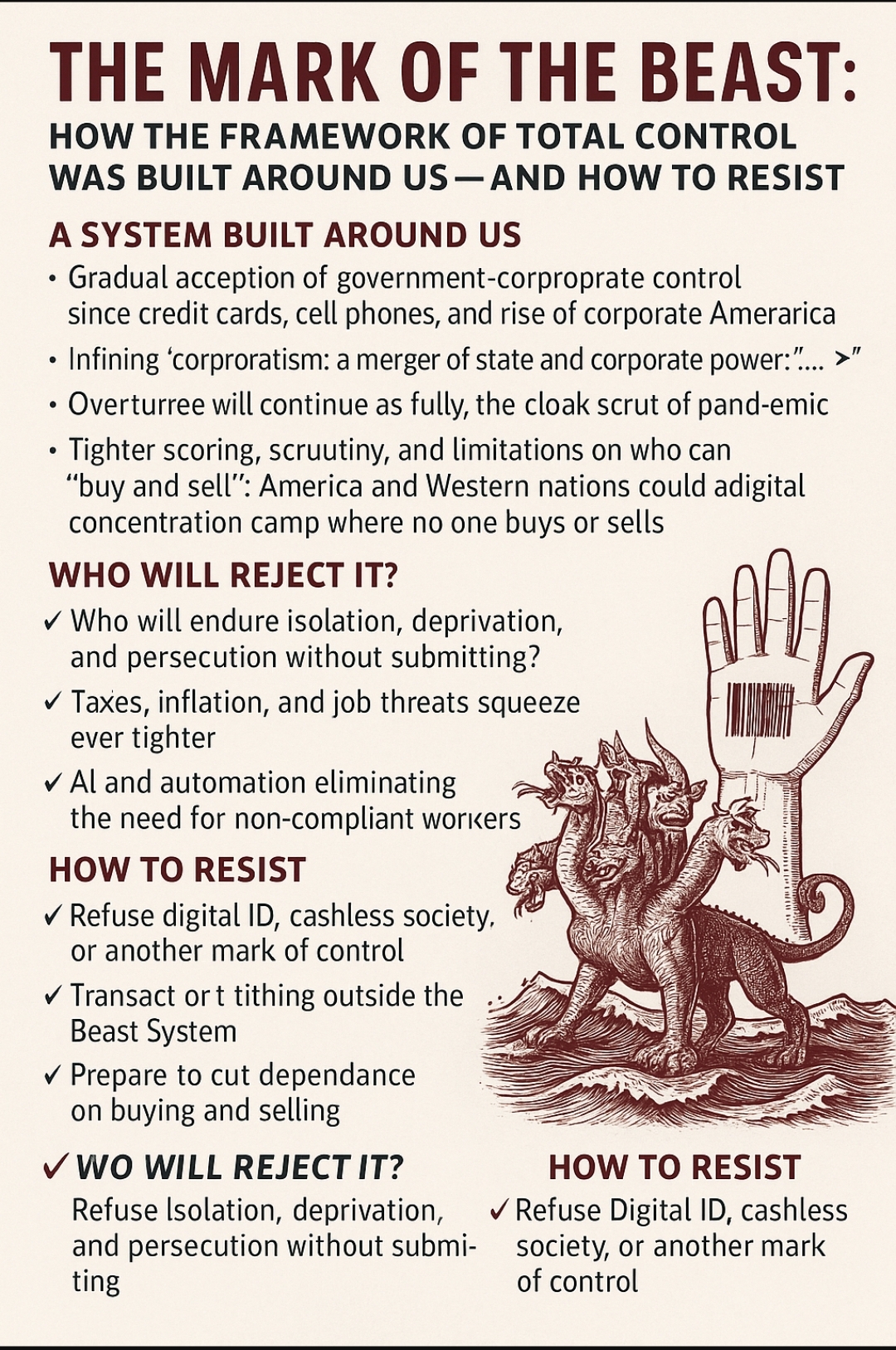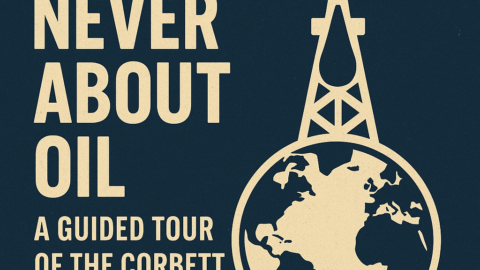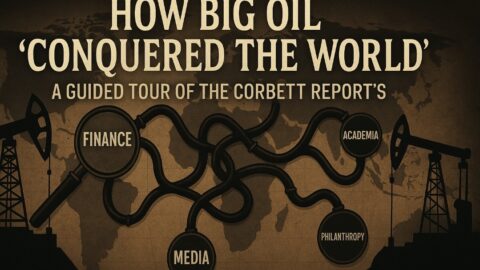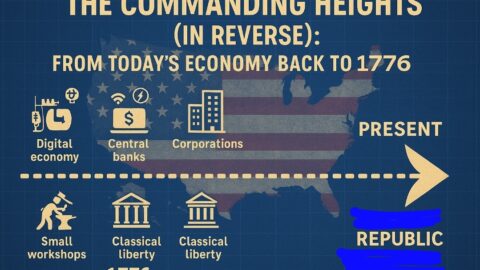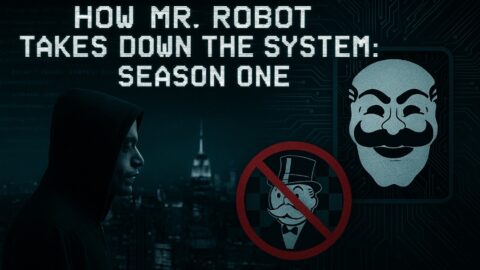Introduction: The Water We Swim In
For generations, many assumed the “mark of the beast” described in Revelation would arrive suddenly—an obvious, dramatic imposition upon a free society. But as history has unfolded, it’s become clear that the reality is far more subtle and insidious. The framework for economic, technological, and spiritual control has been built step by step, so gradually that most never notice. Like the proverbial frog in the pot, we are being slowly brought to a boil.
I. The Scriptural Warning: More Than a Symbol
The Book of Revelation warns that a time will come when “no one may buy or sell except one who has the mark or the name of the beast” (Revelation 13:17).
Traditionally, this passage has been interpreted literally and symbolically: as a warning against a physical sign, but also as a call to recognize allegiance to a global system that elevates comfort, convenience, and power above truth and conscience.
The “mark” is not merely about technology—it’s about the merging of spiritual, economic, and political loyalty. Those who receive it are not just complying; they are surrendering their independence and critical judgment for the right to participate in the world’s system.
II. Building the Beast: The Incremental Web of Control
1. Stepwise Entrapment
- Credit Cards: First, we moved to plastic, allowing unprecedented convenience—but making every transaction traceable.
- Contactless Payments and Smartphones: “Tap to pay” and mobile wallets further reduced friction—and privacy.
- Corporate Loyalty Programs: Rewarding compliance, tracking habits, and shaping behavior.
- Digital ID and Biometric Scans: Sold as “secure” and “efficient,” these systems link our identities to centralized databases.
- Central Bank Digital Currencies (CBDC) and Programmable Money: Money becomes software, allowing transactions to be monitored, restricted, or reversed in real-time.
- Social Credit & ESG Scoring: Our participation in the economy becomes conditional upon compliance with shifting corporate, political, or environmental values.
2. The Mussolini-Washington Warning
“Fascism should more properly be called corporatism, since it is the merger of state and corporate power.” — (attributed to Mussolini)
“Government is not reason, it is not eloquence, it is force. Like fire, it is a dangerous servant and a fearful master.” — George Washington
When corporate and state power merge, as in today’s retirement accounts, healthcare, and finance, we see the true risk. Our security and basic needs become hostage to institutions that care more about compliance and control than genuine liberty.
3. Overton Window Manipulation
Every crisis—whether economic, environmental, or security-related—moves the “acceptable” window a little closer to total surveillance and dependence. “It’s for your safety.” “It’s for equity.” Each new “solution” makes opting out harder.
III. Squeezing Humanity: Economic, Technological, and Psychological Pressure
- Economic Squeeze:
Taxes, inflation, and “too-big-to-fail” bailouts shift risk and loss onto regular people, making them more dependent on state-corporate systems for survival. - Technological Squeeze:
As AI and automation take over more work, millions are pushed out of traditional economic life—forced to rely on universal basic income, digital rations, and compliance-based access. - Psychological Squeeze:
Fear-based narratives (pandemics, terror threats, climate emergencies) are used to justify ever-greater restrictions, making each new level of control seem inevitable. - The New Feudalism:
The slogan “you’ll own nothing and be happy” isn’t a meme—it’s the blueprint for a new global serfdom. Ownership, agency, and even movement are mediated by technocratic systems.
IV. Who Won’t Accept the Mark—and What Does Resistance Require?
Who Won’t Accept It?
- Those anchored in truth over comfort or groupthink.
- Those whose conscience is governed by transcendent principles—divine law, not man’s law.
- Those willing to sacrifice social acceptance, convenience, or even economic participation to stay true to their beliefs.
- Those who have already built the “muscle” of resisting lesser temptations and are ready to stand firm when the stakes are highest.
What Does Resistance Look Like?
- Spiritual Readiness
- Rooted in faith, not team loyalty or material security.
- Discernment to see through propaganda and “wonders” performed by the system.
- Building Community and Alternatives
- Invest in relationships, local economies, mutual aid, and skills that don’t depend on digital permission.
- Support parallel systems—barter, local food, off-grid solutions, independent media.
- Critical Awareness
- Refuse to cheer for new forms of control, even if they seem to benefit your side.
- Watch for Overton Window shifts and question every “new normal.”
- Personal Sacrifice
- Be willing to “lose” status, money, or convenience rather than surrender conscience.
- Accept marginalization, persecution, or being misunderstood.
- Vocal Testimony
- Speak the truth—even when it’s unpopular or costly.
- Warn others gently but clearly; encourage discernment and courage.
V. Conclusion: The Mark Is a Choice—Starting Now
The mark of the beast is not only a future event but an unfolding reality—a series of choices that form our allegiance. Each step of surrender, each trade of principle for comfort, brings us closer to a point where “buying and selling” are mediated by powers that demand not just our data, but our loyalty.
Resisting the mark begins with the small choices—how we spend, what we endorse, and whom we serve. It means swimming against the current, knowing the cost, but trusting that truth and freedom are worth far more than temporary ease.
“The mark is taken one small compromise at a time—until nothing is left to give but your soul. Begin resisting now, and you will have the strength to stand when it matters most.”

